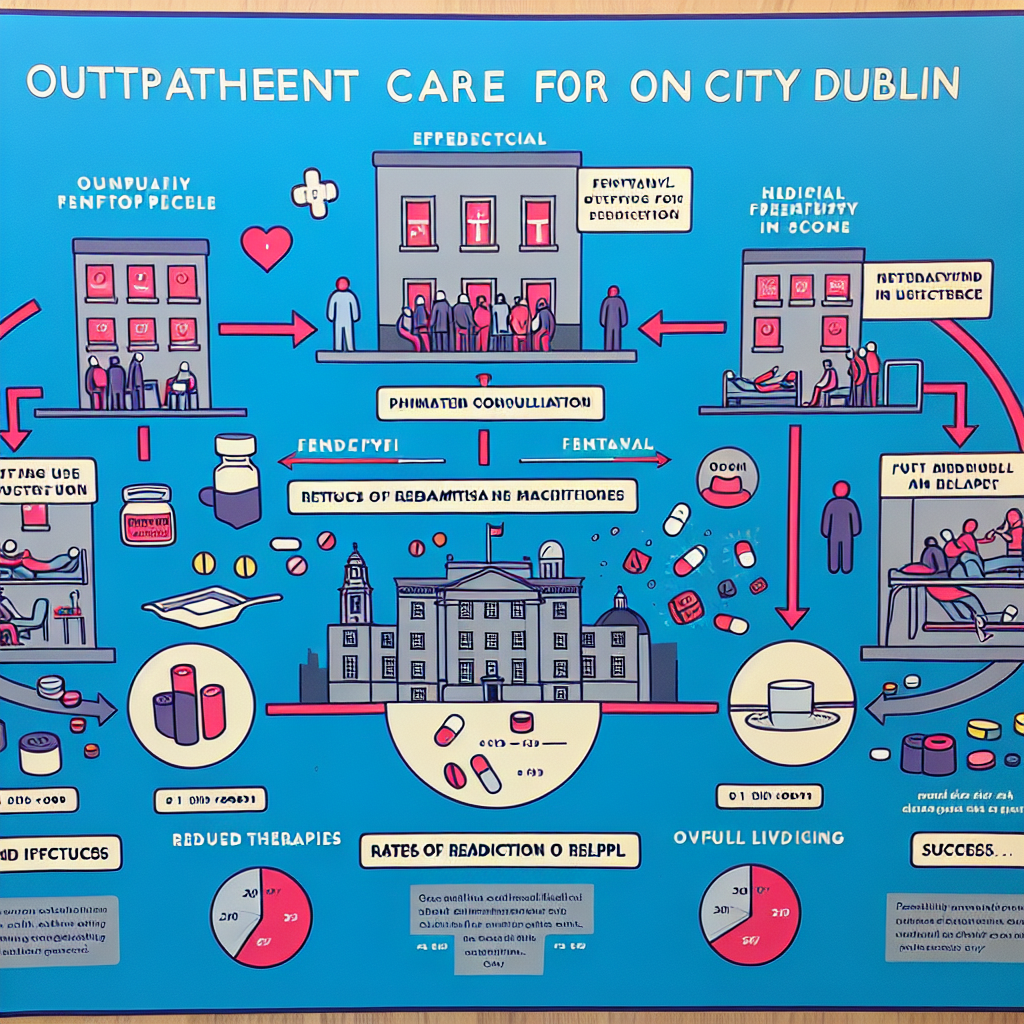-
Table of Contents

“Empower Your Journey: Healing and Hope through Therapy in Fentanyl Addiction Recovery”
Introduction
Fentanyl addiction is a severe and life-threatening condition that requires comprehensive treatment strategies to ensure successful recovery. Therapy plays a crucial role in this process, offering numerous benefits that address both the psychological and physiological aspects of addiction. Through various therapeutic approaches, individuals struggling with fentanyl addiction can gain valuable insights into the underlying causes of their substance use, develop coping mechanisms to manage cravings and triggers, and rebuild their lives with a renewed sense of purpose and well-being. This introduction explores the multifaceted advantages of therapy in the context of fentanyl addiction recovery, highlighting its importance in fostering long-term sobriety and overall mental health.
Emotional Healing: The Role of Therapy in Overcoming Fentanyl Addiction
Fentanyl addiction is a harrowing experience that can leave individuals feeling isolated, hopeless, and overwhelmed. However, the journey to recovery is not one that must be traveled alone. Therapy plays a crucial role in the emotional healing process, offering a beacon of hope and a pathway to a healthier, more fulfilling life. Through various therapeutic approaches, individuals can address the underlying issues that contribute to their addiction, develop coping strategies, and rebuild their lives.
One of the primary benefits of therapy in fentanyl addiction recovery is the opportunity for individuals to explore the root causes of their addiction. Often, substance abuse is a symptom of deeper emotional pain, trauma, or mental health issues. Therapy provides a safe and supportive environment where individuals can delve into these underlying issues, gaining insight and understanding. This self-awareness is a critical first step in the healing process, as it allows individuals to confront and address the factors that have contributed to their addiction.
Moreover, therapy offers a structured space for individuals to develop and practice coping strategies. Addiction often serves as a maladaptive coping mechanism for dealing with stress, anxiety, depression, or other emotional challenges. Through therapy, individuals can learn healthier ways to manage these emotions and stressors. Techniques such as cognitive-behavioral therapy (CBT) can be particularly effective, as they help individuals identify and change negative thought patterns and behaviors. By equipping individuals with these tools, therapy empowers them to navigate life’s challenges without resorting to substance use.
In addition to addressing the psychological aspects of addiction, therapy also fosters emotional healing by providing a sense of connection and support. Addiction can be an isolating experience, leading individuals to withdraw from their loved ones and social networks. Group therapy, in particular, can be incredibly beneficial in this regard. By participating in group sessions, individuals can share their experiences, listen to others’ stories, and realize that they are not alone in their struggles. This sense of community and shared understanding can be profoundly healing, as it helps individuals feel seen, heard, and supported.
Furthermore, therapy can play a pivotal role in rebuilding relationships that may have been damaged by addiction. Substance abuse often strains relationships with family members, friends, and partners. Through family therapy or couples counseling, individuals can work on repairing these relationships, fostering open communication, and rebuilding trust. This process not only aids in emotional healing but also strengthens the support system that is crucial for long-term recovery.
Another significant aspect of therapy in fentanyl addiction recovery is the focus on personal growth and self-discovery. Addiction can strip individuals of their sense of identity and purpose. Therapy encourages individuals to rediscover their passions, interests, and goals. By setting and working towards personal milestones, individuals can regain a sense of control and direction in their lives. This renewed sense of purpose can be a powerful motivator, driving individuals to stay committed to their recovery journey.
In conclusion, therapy is an indispensable component of fentanyl addiction recovery, offering a multifaceted approach to emotional healing. By addressing the root causes of addiction, developing coping strategies, fostering connection and support, rebuilding relationships, and promoting personal growth, therapy provides individuals with the tools and insights they need to overcome their addiction and build a brighter future. The journey to recovery may be challenging, but with the guidance and support of therapy, individuals can find hope, healing, and the strength to reclaim their lives.
Building Resilience: How Therapy Supports Long-Term Recovery from Fentanyl Addiction
Therapy plays a pivotal role in the journey of recovery from fentanyl addiction, offering a beacon of hope and a pathway to resilience. Fentanyl, a potent synthetic opioid, has been at the center of the opioid crisis, leading to a surge in addiction and overdose deaths. The road to recovery is often fraught with challenges, but therapy provides essential support, helping individuals build the resilience needed for long-term sobriety.
One of the primary benefits of therapy in fentanyl addiction recovery is the development of coping mechanisms. Addiction often stems from underlying issues such as trauma, anxiety, or depression. Through various therapeutic approaches, individuals can explore these root causes and learn healthier ways to cope with stress and emotional pain. Cognitive-behavioral therapy (CBT), for instance, helps individuals identify and change negative thought patterns and behaviors, fostering a more positive outlook on life. By addressing these underlying issues, therapy not only aids in overcoming addiction but also promotes overall mental well-being.
Moreover, therapy provides a safe and supportive environment for individuals to express their thoughts and feelings. The stigma surrounding addiction can often lead to feelings of shame and isolation. In therapy, individuals are encouraged to share their experiences without fear of judgment. This open dialogue can be incredibly healing, as it allows individuals to process their emotions and gain a deeper understanding of their addiction. Group therapy, in particular, offers a sense of community and belonging, as individuals connect with others who are facing similar struggles. This shared experience can be a powerful motivator, reinforcing the belief that recovery is possible.
In addition to emotional support, therapy equips individuals with practical skills to navigate the challenges of recovery. Relapse prevention is a critical component of therapy, as the risk of relapse is high in the early stages of recovery. Therapists work with individuals to identify triggers and develop strategies to manage cravings and avoid high-risk situations. Mindfulness-based therapies, such as mindfulness-based stress reduction (MBSR), teach individuals to stay present and manage stress through techniques like meditation and deep breathing. These skills are invaluable in maintaining sobriety and preventing relapse.
Furthermore, therapy fosters personal growth and self-discovery. Addiction often leads individuals to lose sight of their values and goals. Through therapy, individuals can reconnect with their sense of purpose and set meaningful goals for the future. This process of self-discovery can be incredibly empowering, as it instills a sense of hope and motivation. Therapists also help individuals build self-esteem and confidence, which are crucial for sustaining long-term recovery. By celebrating small victories and acknowledging progress, therapy reinforces the belief that change is possible.
Lastly, therapy provides ongoing support throughout the recovery journey. Recovery from fentanyl addiction is not a linear process; it involves ups and downs, and setbacks are a natural part of the journey. Having a therapist to turn to during difficult times can make a significant difference. Regular therapy sessions offer a space for individuals to reflect on their progress, address any challenges, and receive encouragement and guidance. This continuous support helps individuals stay committed to their recovery and build resilience over time.
In conclusion, therapy is an indispensable tool in the recovery from fentanyl addiction. It offers emotional support, practical skills, and a pathway to personal growth, all of which are essential for building resilience and achieving long-term sobriety. By addressing the root causes of addiction, fostering a sense of community, and providing ongoing support, therapy empowers individuals to reclaim their lives and embrace a future free from addiction.
Q&A
1. **Question:** How does therapy help in addressing the psychological aspects of fentanyl addiction recovery?
**Answer:** Therapy helps by providing a structured environment where individuals can explore the underlying psychological issues contributing to their addiction, develop coping strategies, and build resilience against relapse.
2. **Question:** What role does therapy play in improving the overall well-being of individuals recovering from fentanyl addiction?
**Answer:** Therapy plays a crucial role in improving overall well-being by addressing co-occurring mental health disorders, enhancing emotional regulation, and fostering a supportive network, which collectively contribute to a more stable and fulfilling recovery process.
Conclusion
Therapy plays a crucial role in fentanyl addiction recovery by addressing the psychological and behavioral aspects of addiction. It provides individuals with coping strategies, emotional support, and a structured environment to explore underlying issues contributing to substance use. Through various therapeutic approaches, such as cognitive-behavioral therapy (CBT), motivational interviewing, and group therapy, individuals can develop healthier thought patterns, improve emotional regulation, and build a supportive network. Additionally, therapy helps in relapse prevention by equipping individuals with tools to manage triggers and stressors. Overall, therapy significantly enhances the chances of long-term recovery and improves the quality of life for those struggling with fentanyl addiction.



